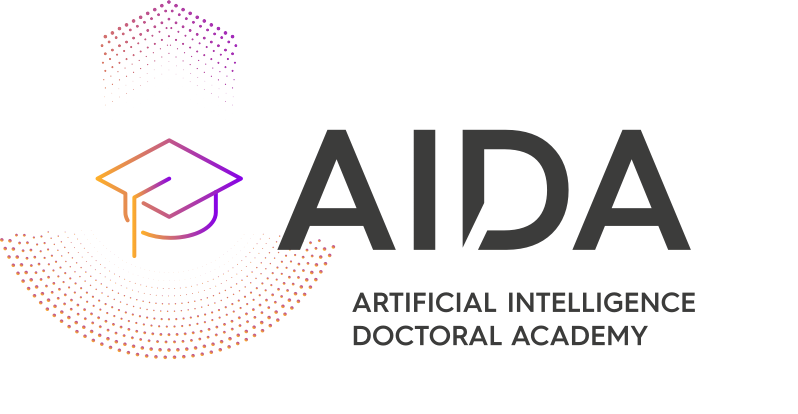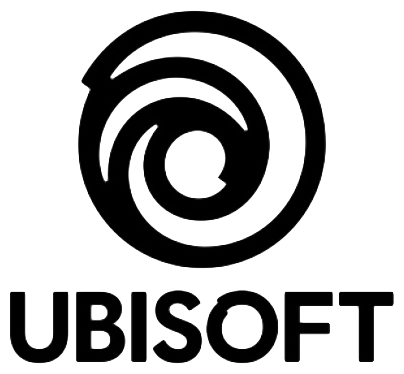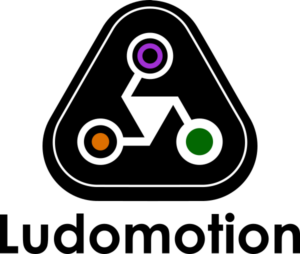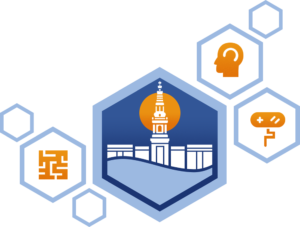
Summer School Description
The third International Summer School on Artificial Intelligence and Games will be held online, hosted from Copenhagen, Denmark, from July 5 to 9, 2021. The school is organized by modl.ai in partnership with Unity, DeepMind, and Creative Assembly (more partners will be announced soon).
The summer school is dedicated to the uses of artificial intelligence (AI) techniques in and for games. After introductory lectures that explain the background and key techniques in AI and games, the school will introduce participants the uses of AI for playing games, for generating content for games, and for modeling players.
This school is suitable for industrial game developers, designers, programmers and practitioners, but also for graduate students in games, artificial intelligence, design, human-computer interaction, and computational intelligence.
The main lecturers are Georgios N. Yannakakis and Julian Togelius, co-authors of the AI and Games textbook (http://www.gameaibook.org), the first comprehensive textbook on the use of AI in games. During the first phase of the school theoretical lectures will be complemented by guest lectures on special topics in game AI and by hands-on workshops given by world-leading practitioners. For the second phase of the school, we plan a game AI jam on the taught material.
Previous Summer Schools
We are happy to announce that due to the new format we were able to reduce our ticket prices!
The 3rd International Summer School on AI and Games is organised by modl.ai.
Modl.ai creates unique AI solutions that empower game developers around the world by automating game development and enhancing player engagement by embedding AI technology in key development stages.
Lecturers

Georgios N. Yannakakis
Georgios N. Yannakakis (yannakakis.net) is a Co-Founder and Research Director (Malta) of modl.ai, and Professor and Director of the Institute of Digital Games, University of Malta. He is a leading expert of the game artificial intelligence research field with core theoretical contributions in machine learning, evolutionary computation, affective computing and player modelling, computational creativity and procedural content generation. He has published more than 220 papers and his work has been cited broadly. He has attracted funding from several EU and national research agencies and received multiple awards for published work in top-tier journals and conferences. His work has been featured in New Scientist, Science Magazine, The Guardian, Le Monde and other venues. He is regularly invited to give keynote talks in the most recognised conferences in his areas of research activity and has organised a few of the most respected conferences in the areas of game AI and game research. He has been an Associate Editor of the IEEE Transactions on Computational Intelligence and AI in Games and the IEEE Transactions on Affective Computing journals; he is currently an Associate Editor of the IEEE Transactions in Games. He is the co-author of the Artificial Intelligence and Games Textbook.

Julian Togelius
Julian Togelius (julian.togelius.com) is a Co-Founder and Research Director (New York) of modl.ai, and an Associate Professor at the Department of Computer Science and Engineering at the New York University Tandon School of Engineering. Previously, he was an Associate Professor at the Center for Computer Games Research, IT University of Copenhagen and among the founders of the procedural content generation research field. Togelius has introduced core procedural generation paradigms and frameworks for game content such as the Experience-driven Procedural Content Generation (EDPCG) framework and the Search-based Procedural Content Generation (SBPCG) paradigm which define two of the leading research trends within procedural content generation. EDPCG couples player experience modelling and procedural content generation so that game content is generated in a personalised manner for affecting the experience of the player and SBPCG offers a taxonomy for the generation of game content through search. He co-edited the first book on Procedural Content Generation in Games. Togelius' research has appeared in respected international media such as New Scientist, and Le Monde. He is the Editor-in-Chief of the IEEE Transactions on Games (launch in January 2018) and the co-author of the Artificial Intelligence and Games textbook.
Introduction to the Summer School and Game AI
This session is dedicated to introducing the format of the summer school and explaining how artificial intelligence techniques can be used in and for games. After an introductory part that will focus on the history, background and key techniques used in AI and games, we will outline how to best use AI algorithms to play games, to generate content for games and to model players.
Search-Based and Constructive Procedural Content Generation
...
Machine Learning-Based, Mixed-Initiative and Experience-Driven Procedural Content Generation
Once we have obtained reliable models of players the next obvious question is how we can possibly design appropriate games for them. Games that have both the necessary aesthetic elements and functional properties for their designers and players. Methods derived from procedural content generation can be coupled with player models to yield entirely novel and personalised content for each player or designer. With such technology we can debug the experience attributed to each content type we design in an autonomous or a designer-assisted way.
Player Modelling
How can we possibly detect behavioral patters, experiences elicited and decision made by players in a reliable manner? In this talk we will be taking you through the full cycle of the game affective loop with a focus on game experience elicitation, experience annotation and machine learning for the creation of models of players. The player modeling technology we will introduce is directly applicable for modeling both behavioral (player analytics) and experience aspects of play.
AI for Playing Games
...
Guest Lecturers

Tom Schaul
Senior Staff Research Scientist at Google DeepMind.
Tom Schaul is a research scientist at Google DeepMind. His research interests include modular and hierarchical reinforcement learning, exploration, stochastic and black-box optimization with minimal hyperparameter tuning, and deep and recurrent neural networks, with a special focus on games.
Tom holds a PhD from TU Munich (2011), which he completed under the supervision of Jürgen Schmidhuber at the Swiss AI Lab IDSIA. From 2011 to 2013 he was a postdoc at the Courant Institute of NYU, in the lab of Yann LeCun. He joined DeepMind in 2013, and is part of its reinforcement learning team.
Deep RL and Games: The Key Concepts
This lecture is centered on reinforcement learning (RL). We’ll discuss what it is, what it isn’t, and how it relates to other subfields of AI. We’ll ponder questions of scope: is RL a solution to everything? What can it not do, or not efficiently (yet)? I’ll then map out the scenery in more detail, both in terms of what RL’s many challenge dimensions are, as well as how its most common solution pieces fit together. And throughout, we’ll see how symbiotic the relationship between RL and games is, why RL is a great candidate for producing intelligent behaviour in games, and why games are the ideal playground to conduct RL research.
Deep RL and Games: AlphaStar Deep Dive
This talk builds upon the “key concepts” lecture and goes into greater technical depth. We’ll look at some how some state-of-the-art RL algorithms work, discuss the tricks of the trade, and pragmatic concerns for agent builders. Our running example throughout will be AlphaStar, a complex, multi-agent RL system, which recently succeeded at achieving grandmaster level at the full game of StarCraft II.
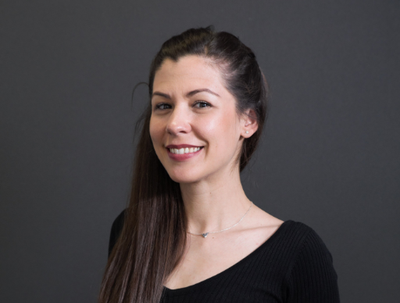
Duygu Cakmak
Project Technical Director at Creative Assembly.
Duygu Cakmak is a Project Technical Director at Creative Assembly on the Total War campaign AI team. With a diverse background ranging from game AI development to software engineering, she joined Creative Assembly in 2015 first as an AI programmer, then later as a senior programmer. Duygu won the 2019 MCV Women In Games Awards for the Technical Impact of the Year.
AI Decision Making in Turn-Based Strategy Games
Turn-based strategy games present a very complex environment: a big map, a large number of entities, resources, and several gameplay systems. Players need to have an understanding of what each one of these systems do. They need to be able to make appropriate decisions based on many criteria such as what they want to achieve in the long term or how strong they are compared to their enemies. Similar to the player, every AI agent needs to make decisions on each of these systems. The decisions that the AI makes are highly dependent on the current state of the world, requiring a deep and careful analysis of its entities with limited memory and time budgets. In this lecture, we will talk about the challenges of developing AI for turn-based strategy games and how we designed and implemented our AI systems in the Total War series. The topics will include how we analyze the world, how we use Monte Carlo Tree Search in the resource allocation and army coordination systems, and how we developed a data-driven utility-based AI for the diplomacy system.
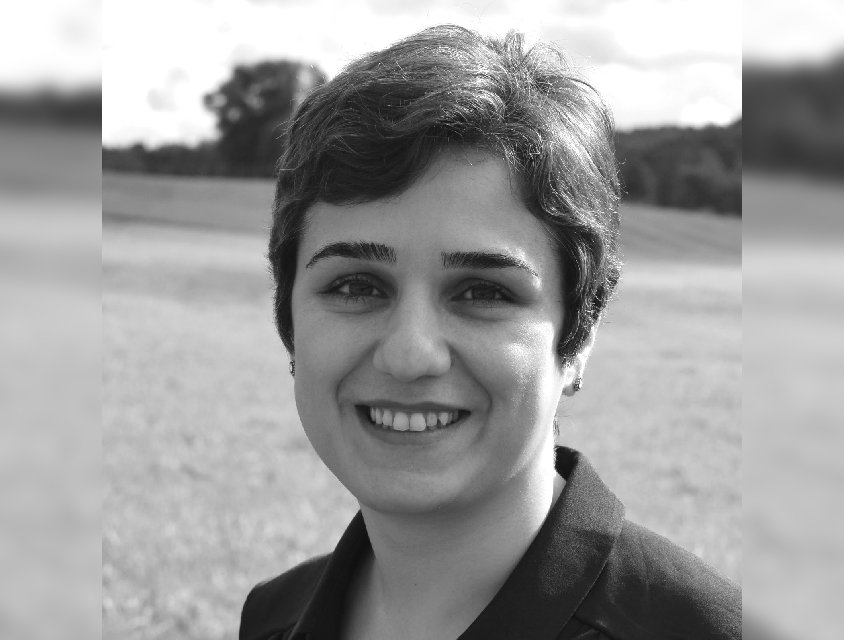
Sahar Asadi
AI Research Lead at King.
Sahar is a research lead at King where she drives AI research for the game. Sahar has obtained her Ph.D. on mobile robot olfaction from Applied Autonomous Sensor System, Orebro University. Throughout her 8 year-long industry journey, she got to apply research to real problems in many different domains: user experience at Spotify, distributed deep learning at Clusterone, information retrieval and NLP at Meltwater, and product recognition at OculusAI.
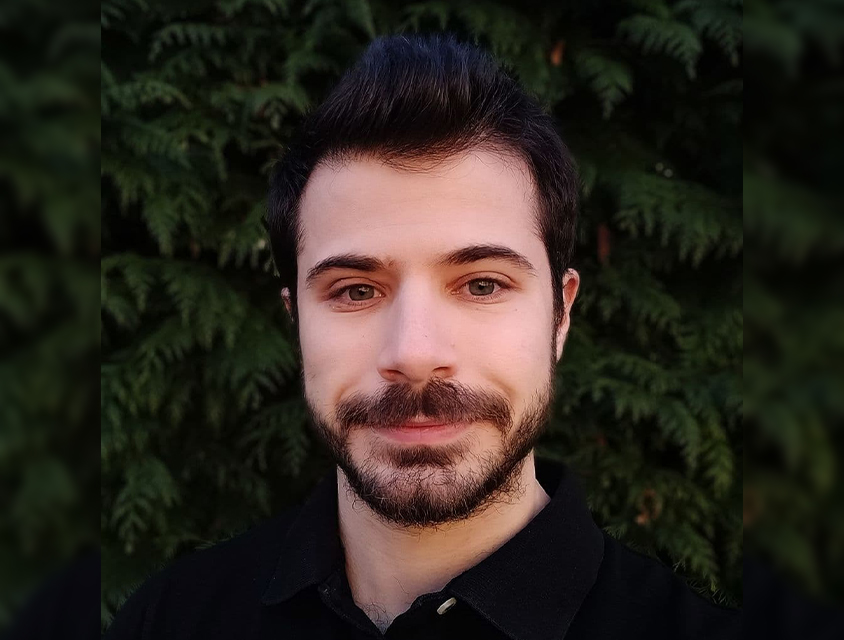
Matteo Biasielli
Data Scientist at King.
Matteo is a Data Scientist at King, where he works in the Central AI Team and carries out research on AI for the game, in particular on content generation and user experience personalization. Matteo studied Computer Engineering and Machine Learning at the Polytechnic University of Milan and the University of Illinois at Chicago. His academic research revolved around the use of Deep Learning approaches in the field of Dependable Systems, with a focus on hardening schemes for image and signal processing systems in aerospace applications.
AI for Playtesting in Games
Offering high-quality content and good user experience is essential in game development. Playtesting is a process to test game content. We apply AI to playtest games at King. The focus of this session will be on building AI solutions for automatic playtesting of content; the challenges, and existing solutions. This session is structured in two parts: in the first part, we discuss playtesting for games and present different AI methods applied for playtesting. As an example, we showcase some of our experience in playtesting at King. In the second part, we will try out a few of the discussed approaches.

Daniel McDuff
Principal Researcher at Microsoft.
Daniel is a Principal Researcher at Microsoft in the Human Understanding and Empathy group. Daniel completed his PhD in the Affective Computing Group at the MIT Media Lab in 2014 and has a B.A. and Masters from Cambridge University. His work on noncontact physiological measurement helped spawn a new field of imaging-based photoplethysmography. His work has received nominations and awards from Popular Science magazine as one of the top inventions in 2011, South-by-South-West Interactive (SXSWi), The Webby Awards, ESOMAR and the Center for Integrated Medicine and Innovative Technology (CIMIT). His projects have been reported in many publications including The Times, the New York Times, The Wall Street Journal, BBC News, New Scientist, Scientific American and Forbes magazine. Daniel was named a 2015 WIRED Innovation Fellow, an ACM Future of Computing Academy member and has spoken at TEDx and SXSW.
AI, Human Understanding and Empathy in Gaming
Machine learning and AI present many opportunities for building new human-computer interfaces. This lecture will cover examples of state-of-the-art human sensing and synthesis algorithms that can be used to create computer and gaming systems that understand and adapt to users’ physiological states, expressions and style. It will address how these techniques can be used in end-to-end embodied conversational agents and what applications these might have in gaming. I will also suggest how giving agents their own emotional drives (such as fear or delight) could be used to create more intelligent artificial agents. Finally, these technologies present many opportunities; however, they also raise questions about the ethics of designing systems that measure and leverage highly personal data. The talk will contain proposals for design principals to help address these questions.
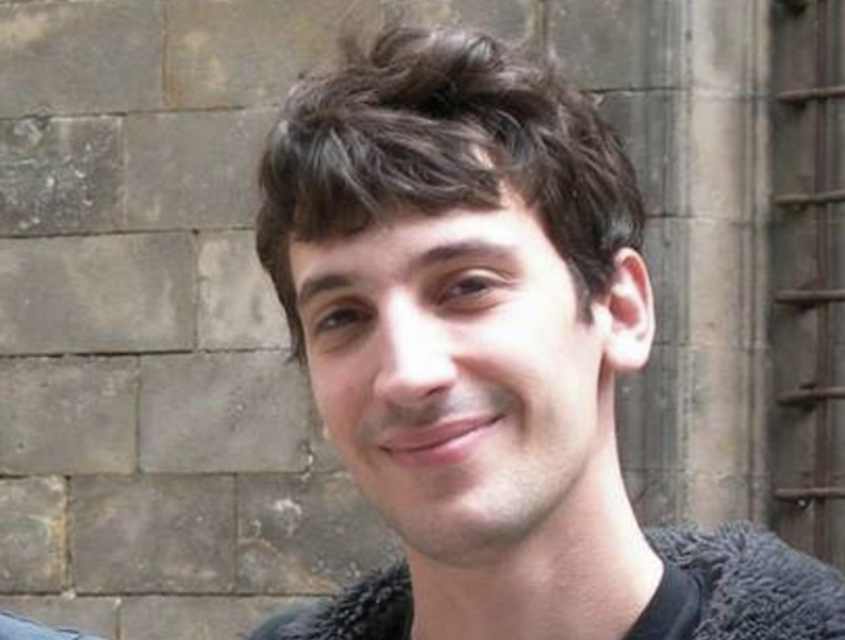
Vincent-Pierre Berges
Senior Machine Learning Engineer at Unity Technologies.
Vincent-Pierre is a Senior Machine Learning Engineer at Unity Technologies. He was one of the founding team members of Unity Machine Learning Agents, an open-source toolkit that allows game developers to create behaviors in games using deep reinforcement learning. The toolkit has become one of the top Github projects for deep learning and artificial intelligence. Vincent-Pierre holds Master's degrees from Stanford University and the École Polytechnique of France.
Using Unity and ML-Agents for Research, NPC AI, and More
This lecture and tutorial will walk through using Unity with the ML-Agents toolkit for conducting Machine Learning research, and in designing and testing games. We will walk through both the motivation and design of the toolkit, with a particular focus on scenarios applicable to game AI. The tutorial will also include an explanation of the kinds of algorithms being used to train machine learning agents, including various Reinforcement Learning and Imitation Learning methods. The first half will be a higher-level look, while the second half will take place in the context of a hands-on creation process, where we will walk through designing an environment, training an agent within it using ML-Agents, and finally deploying the trained model into a game which can be played.
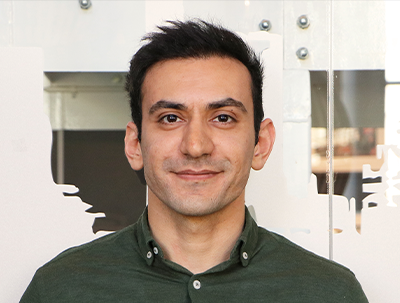
Ahmad Azadvar
User Research Lead at Ubisoft Sweden & PhD candidate at Malmö University
From an early involvement with the entertainment industry to purely academic research, Ahmad has always been interested in what makes us engaged and transferred to a virtual world and even more importantly what keeps the engagement for longer periods. Working on over 30 video game projects including some of the most remarkable AAA titles under development and out in the market reaching to hundreds of millions of players, as well as sustained involvement with Academia in different ways, has been a great resource for him to maintain his enthusiasm, grow his knowledge and stay at the prime of Game User Research.
At Ubisoft Massive, Ahmad started his career mainly focusing on the Biometrics approach (psychophisiology) in user research. Currently, he oversee planning, development, set-up and analyzing various testing methods while enabling the crossing of a plethora of types of data collected within multiple disciplines & departments for an optimal simulation of the user experience. Ahmad also spearheaded the development of new qualitative and quantitative methodologies as well as data acquisition, analysis, visualization and delivery approaches in order to contribute to the improved utilization of consumer research within the bigger team of Ubisoft.
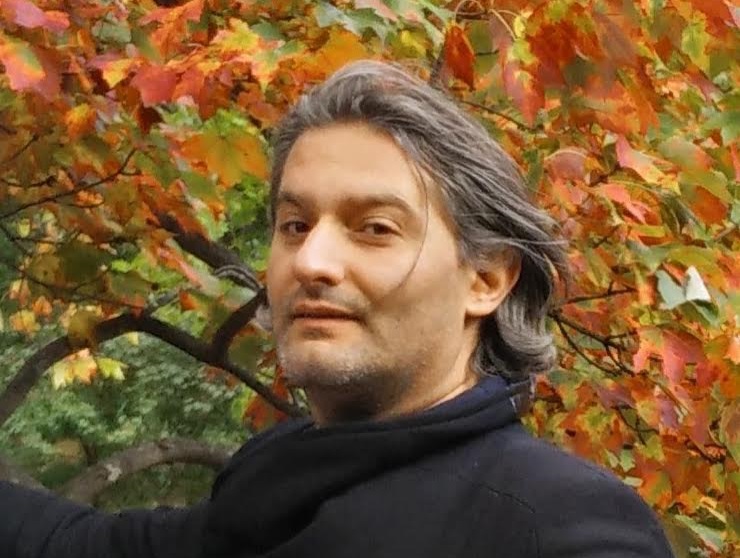
Alessandro Canossa
Czar of Player Experience at modl.ai
Dr. Alessandro Canossa has been straddling between the game industry and academia for many years. He has been Assistant Professor at the IT University of Copenhagen, Associate Professor at Northeastern University in Boston and he's now at the Royal Danish Academy of Fine Arts. In his research, he employs psychological theories of personality, perception, motivation and emotion to design games with the purpose of investigating individual differences in behavior among users of digital entertainment. His research focuses heavily on these topics: a) developing behavioral analysis methods that are able to account for granular spatial and temporal events, avoiding aggregation; b) designing and developing visual analytics tools that can enable any stakeholder to produce user driven content leveraging advanced statistics and machine learning.
He was also Senior User Researcher and Data Scientist at Massive Entertainment a Ubisoft studio, where he enjoyed tremendously investigating occult behavioral patterns and novel player modeling approaches while identifying the best processes for transferring knowledge from academic research to industry practices. He's now involved with Modl.AI, a company providing AI services to the game industry, where he's exploring how to triangulate data-driven insights with surveys and lab observations to advance the field of predictive analytics.
Predicting Players’ Motivations from Gameplay Data
In this workshop, based on the paper “Your gameplay says it all”, we will explore the process of
predicting players’ motivations from their gameplay data. Player motivation is assessed with UPEQ a
survey based on Self Determination Theory created by Ubisoft. Two datasets will be given to
participants: a) responses to the questionnaire and b} granular behavioral data from the game Tom
Clancy’s The Division (TCTD).
The workshop will be structured in three parts:
- UPEQ: structure of the questionnaire, constructs (competence, autonomy, relatedness and
presence), factors and reliability
- TCTD dataset: overview of the game and detailed structure of the dataset
- Algorithm: explanation of the preference learning method based on support vector machines,
to infer the mapping between gameplay and motivation.
Participants will have the chance of replicating the results of the paper; invert the prediction, inferring
in-game behavior from player motivation or experiment with the method and dataset provided.
We will conclude the session by sharing the results of the different workgroups.

Nick Walton
CEO and Co-Founder of Latitude.
Nick Walton is the CEO and Co-Founder of Latitude, a company dedicated to democratising AI as a tool for creativity. Nick leads the team behind AI Dungeon, an innovative text-RPG leveraging a massive natural language model. This model, the "Dragon", was developed in collaboration with Open AI and it is one of the most powerful GPT-3 based AI models in the world. AI Dungeon uses this model to generate a story and results of player actions as they interact with its virtual world.
The Challenges and Opportunities of Using Massive Language Models for Games
Natural language generation models have advanced at a rapid pace over the last several years. This has enabled entirely new types of games (like AI Dungeon) that could never have been built before. It also comes with huge challenges. We'll talk about both the massive opportunities these models give in making previously impossible games as well as the challenges that have to be solved to fully utilize them.
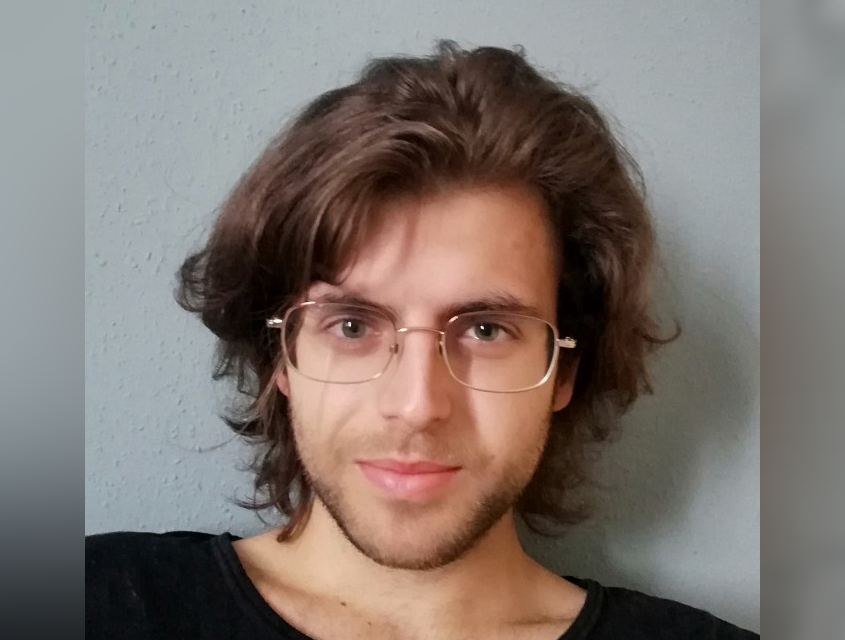
Benedict Wilkins
PhD Student and researcher at SIE Future Technology Group (FTG).
Benedict Wilkins is a final year PhD Student at Royal Holloway University of London, currently working at Sony Interactive Entertainment (SIE) FTG. His research is centred around AI-driven automated game testing, and specifically on machine learning methods for the discovery and detection of video game bugs.
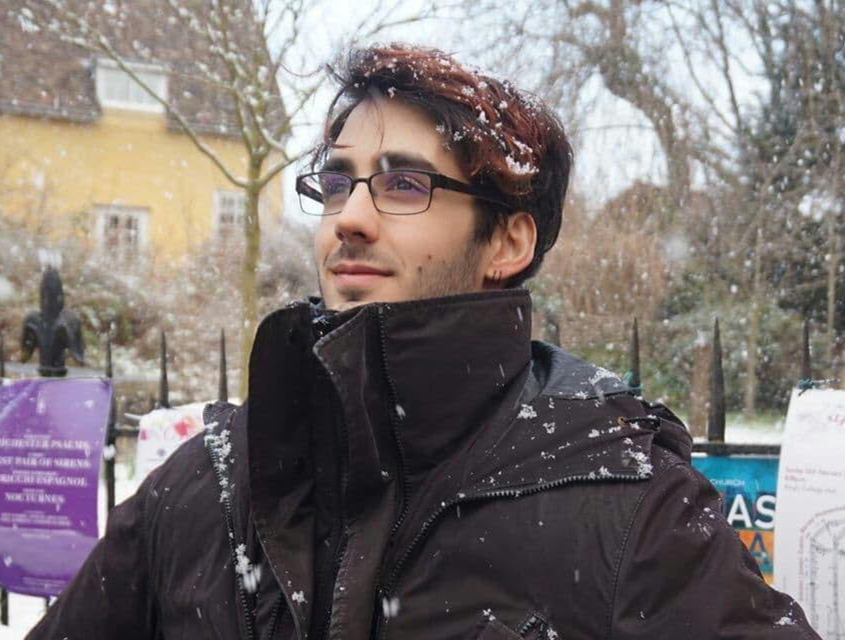
Daniel Hernandez
PhD Student and researcher at SIE Future Technology Group (FTG).
Daniel is a research engineer intern at Sony Interactive Entertainment (SIE) FTG.. He is a PhD student at the University of York, having received a B.A and Masters at Imperial College London. His research pushes the uses of AI in videogames via generating competitive and diverse AI agents in multiplayer games with Reinforcement Learning, creating agents from player data and automated game balancing.
Leveraging Gameplay Data for Regression Testing with Offline RL
Regression testing is the process of ensuring that updates to a game work as intended, and that no new issues have been introduced as a result of new features. This task is often carried out by human QA (Quality Assurance) teams, which is generally time consuming and rarely covers the full range of avenues for exploration. The promise of using AI techniques in this field is to automate the various aspects of testing with game playing agents. Currently, training game playing agents for complex games like those we wish to test in practice is prohibitively expensive. This is due to the massive number of environment interactions required to learn even simple behaviours and the cost of running the game itself. So we ask the question, is there a way in which we can leverage gameplay data, coming from internal QA sessions or captured logs from real players to mitigate these problems? This talk will be split into two parts. The first half will focus on learning world models from player data with the goal of bypassing the need to run expensive game simulations and to model the expected environment behaviour. The second half will introduce Offline Reinforcement Learning, a subfield of Reinforcement Learning constrained to generating policies from an offline dataset of player collected trajectories without access to the game environment.

Luke Dicken
Director of Applied AI at Zynga and Chair of the IGDA Foundation.
Dr. Luke Dicken is Director of Applied Artificial Intelligence at Zynga Inc where he leads a team driving innovation at the intersection of AI, Analytics, Game Development and Computational Creativity. Luke is also Chair of the IGDA Foundation, a charitable organization driving diversity and inclusion throughout the games industry. He was named as one of Develop magazine’s “30 Under 30” for 2013, and was listed as the #1 most influential person in Game Analytics in 2018, but hasn’t found a subtle way to work either of these into a bio.
Where Does Data Come From?
Whenever we talk about Game AI, we invariably talk about making decisions based on what players do in the game. But how do we know what players are doing in the game? This workshop will explain how Analytics works, and provides the foundation on which Game AI can be built. During the workshop, you can expect to learn some of the basics of analytics infrastructure and implement a very basic analytics tracking system in an example Unity project.

Joris Dormans
Founder and Game Director of Ludomotion
Joris Dormans is the founder and game director at Ludomotion where puts into practice his theoretical PhD work on emergent gameplay and procedural content generation. He is also an assistant professor at Leiden University where he teaches Game Studies to humanities and computer science students.
Foreshadowing Generated Content
Unexplored and its sequel are successful at creating a coherent generated experience. Foreshadowing plays a key role in this success. In this talk I will go into the generative grammar techniques derived from model driven engineering that are the driving force behind our ability to know beforehand what will be generated elsewhere in the game.
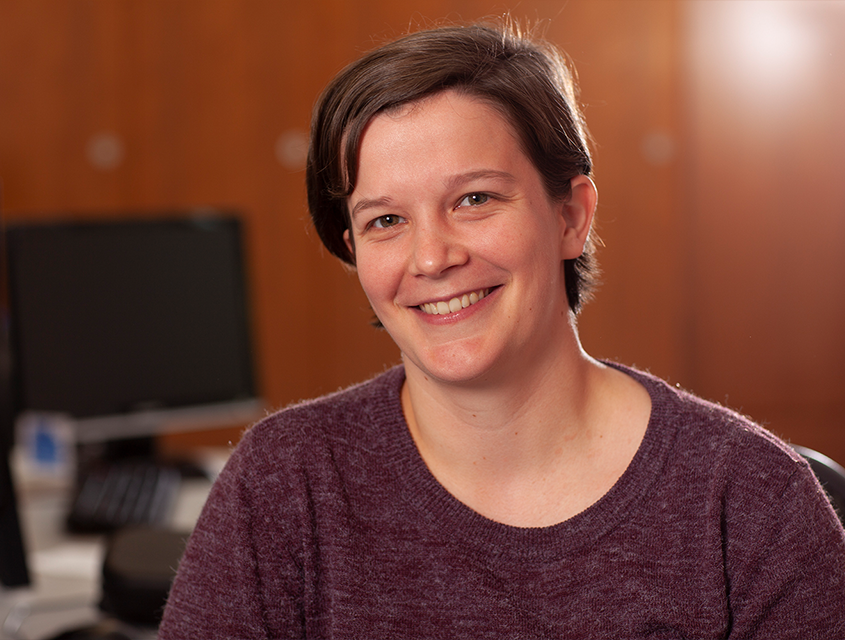
Vanessa Volz
AI Researcher at modl.ai
Vanessa Volz is an AI researcher at modl.ai (Copenhagen, Denmark), with focus in computational intelligence in games. Her work at modl.ai focuses on developing products for and supporting game studios with the integration of AI methods into game development, mostly for content generation and automatic testing. Her current research focus is on employing surrogate-assisted evolutionary algorithms to obtain balance and robustness in systems with interacting human and artificial agents, especially in the context of games.

Sam Snodgrass
AI Researcher at modl.ai
Sam is an AI researcher at modl.ai developing designer-facing PCG tools. His research has investigated using graphical models for procedural content generation (PCG), and more generally the application of machine learning to PCG (or PCGML). Recently he has been exploring PCGML with particular foci on both cross-domain/game applications and designer-facing tools.
When a Feature is Too Difficult to Model With AI - Don’t
Casual mobile games often require a large amount of content and are (ideally) at least tried by lots of players. This can make data-driven artificial intelligence (AI) methods, at first glance, seem like a perfect match to support the development process by reducing repetitive aspects of designing content. Spoiler: It is - but not as expected. In this talk, Sam Snodgrass and Vanessa Volz will describe the many unexpected challenges they discovered and lessons learned when building a tool to automatically generate and test Match-3 puzzle games. They found that many state-of-the-art AI methods had to be adapted according to domain knowledge in surprising ways. Fortunately, they were able to strike a balance and create an AI-based system that now successfully supports the production of a published mobile Match-3 game. This is the story of how they got there.

Alisa Kim
Data Scientist of the Amazon's Machine Learning Solutions Lab
As a Data Scientist of the Machine Learning Solutions Lab Alisa is responsible for building the data-driven solutions with direct effect on bottom-line for AWS customers. With gaming as one of her specializations, she tackles the tasks like toxicity detection, player matching and content personalization with AWS-based and custom ML tools, boosting the operational efficiency and customer satisfaction.
Churn Prediction and QA Testing - Capcom Case Study
Machine Learning Solutions Lab collaborated with a leading Japanese game developer CAPCOM to develop ML solution for two cornerstone gametech problems: customer churn and QA automation. The former was solved by identifying both the possible churners and the cheaters with AutoGluon, combined with the interpretability analysis. To address the game quality assurance, MLSL developed Unity ML-Agents with Amazon SageMaker RL and reduced 20% of training cost. These solutions allowed CAPCOM to improve customer satisfaction and game quality.

Frederic Nowak
Solutions Architect at Amazon Web Services (AWS) – Game Tech
Veteran of the game industry and former CTO, as an AWS Game Tech Solutions Architect, I am supporting indies and big studios to use Amazon Web Services to accelerate their growth and make their players have fun!
How to build a fraud detection system for Games on AWS?
As video games rise in popularity and more games move toward free-to-play models, there’s more opportunity for fraudulent behavior among players. Fraud is problematic for studios because it devalues in-game currency that’s bought with real money and the digital goods that can be purchased with it. Fraud also causes players to lose trust in the community and the developer. It may cause players to stop playing your game, impacting your game’s lifetime value. In this session, you will get an overview of the AWS Machine Learning Stack with a deeper look at Amazon SageMaker the AWS Machine Learning platform. You will also learn how to build a Fraud detection system leveraging custom models and serverless AWS services.

Ahmed Khalifa
AI Researcher at modl.ai
Constructive Level Generation
In the last couple of years, there is a rising trend of using PCG in games especially in generating game levels. As a game developer/designer, it is useful to be aware of the different techniques that can be used. They not only help you to generate new levels every time you ask but also they could enable new gameplay experiences. In this workshop, we focus on showing the audience some of the different techniques and methods used by game developers to generate game levels.

Christoffer Holmgård
Co-founder and CEO of modl.ai
Christoffer is one of the co-founders and CEO of modl.ai, as well as a Doctor of Philosophy in Artificial Intelligence and Procedural Content Generation.
Christoffer has a stellar track record as a game researcher, artificial intelligence researcher, and game developer, forming his very first game development company in 2008, Duck and Cover Games ApS. In 2011, Christoffer joined the award winning game studio Die Gute Fabrik as a Partner and Managing Director, becoming the Chair of the Board of Directors in 2020. During his tenure, the studio secured more than 22 industry nominations and awards, including the GDC Innovation Award and the Indiecase Grand Jury Award.
Christoffer holds a BA degree in Psychology from the University of Copenhagen and an MSc in Media technology from The IT University of Copenhagen. In 2015, Christoffer earned a PhD in Artificial Intelligence and Procedural Content Generation from The IT University of Copenhagen and further earned a post-doctorate in Game Engineering from New York University.

Benedikte Mikkelsen
Co-founder and CPO (Chief Product Officer) of modl.ai
Game developer and design veteran, Benedikte is a co-founder and CPO (Chief Product Officer) of modl.ai.
Benedikte earned a degree in Architecture from The Royal Danish Academy of Fine Arts and MSc in Media technology from The IT University of Copenhagen. With over 12 years of experience in games as one of the founders of game development company, Duck and Cover Games, she co-founded modl.ai alongside Christoffer Holmgård.
Glitch Finder
...
Game AI Jam Facilitator and Guest Lecturer

Antonios Liapis
Lecturer at the Institute of Digital Games, University of Malta.
Antonios Liapis is a Lecturer at the Institute of Digital Games, University of Malta, where he bridges the gap between game technology and game design in courses focusing on human-computer creativity, digital prototyping and game development. His research focuses on Artificial Intelligence as an autonomous creator or as a facilitator of human creativity. His work includes computationally intelligent tools for game design, as well as computational creators that blend semantics, visuals, sound, plot and level structure to create horror games, adventure games and more. He has also co-organized numerous game jams, and has participated in even more!
Game AI Jam
During the last two afternoons of the Summer School, we will participate in a game AI jam, facilitated by Antonios Liapis. During the jam students will work in teams, focusing on creating a game environment for applying or testing the algorithms discussed during the remainder of the school. Alternatively, teams can also create a tool rather than a full game, such as a generator for game content (levels, graphics, audio...). The two-day jam will conclude with a "demo hour" where all students and lecturers can see and play with the different projects, and talk to each other about best practices and lessons learned.
Webmaster and Publicity Chair
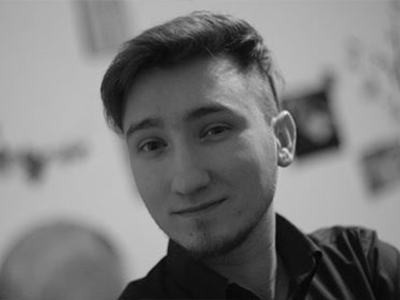
David Melhart
AI Researcher at modl.ai
David Melhart is an AI Researcher for Modl.ai, specializing in User Research and Player Modelling. He was the Communication Chair of FDG 2020 and has been a recurring organizer and Publicity Chair of the Summer School series on Artificial Intelligence and Games (2018-2021). With more than a dozen publications, an industry collaboration with Ubisoft, and multiple conference appearances behind his back, David is an experienced presenter. He is studying towards a Ph.D. in AI and Games Research at the Institute of Digital Games, University of Malta. He received a master's degree in Cognition and Communication from the University of Copenhagen in 2016. His academic research focuses on Machine Learning and Affective Computing.
Summer School Program
We are still working on our schedule! Don't miss the update! Subscribe to our mailing list!
Timeslots in the program correspond to the CEST timezone.
| Monday | ||||
| 11:30-12:00 |
Welcome Session and Game Jam Introduction |
|||
| 12:00-12:30 |
AI and Games: Introduction Georgios N. Yannakakis & Julian Togelius  |
|||
| 12:30-13:30 |
AI that Plays Julian Togelius  |
|||
| 13:30-14:00 | Coffee Break | |||
| 14:00-15:00 |
Deep RL and Games: The Key Concepts Tom Schaul  |
|||
| 15:00-15:30 | Coffee Break | |||
| 15:30-16:30 |
AI in Strategy Games Duygu Cakmak  |
|||
| Research Track | Hands-On Workshop Track | |||
| 16:30-17:30 |
Deep RL and Games: AlphaStar Deep Dive Tom Schaul  |
Using Unity and ML-Agents for Research, NPC AI, and More Vincent-Pierre Berges  |
||
| 19:00-20:00 | Summer School TV Tommy Thompson  |
|||
| Tuesday | ||||
| 11:45-12:00 |
Game AI Jam Check-In Antonios Liapis  |
|||
| 12:00-13:00 |
AI that Designs Julian Togelius  |
|||
| 13:00-14:00 |
Foreshadowing Generated Content Joris Dormans 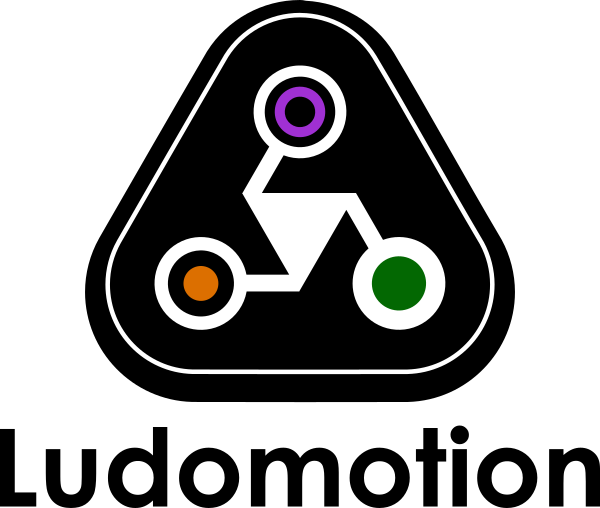 |
|||
| 14:00-14:30 | Coffee Break | |||
| 14:30-15:30 |
When a Feature is Too Difficult to Model With AI - Don’t Vanessa Volz & Sam Snodgrass  |
|||
| 15:30-16:00 | Coffee Break | |||
| Research Track | ||||
| 16:00-17:00 |
Frontiers in PCG Julian Togelius & Georgios Yannakakis  |
|||
| Hands-On Workshop Track | ||||
| 17:00-18:00 |
Constructive Level Generation Ahmed Khalifa  |
|||
| 19:00-20:00 | Summer School TV Tommy Thompson  |
|||
| Wednesday | ||||
| 12:15-12:30 |
Game AI Jam Check-In Antonios Liapis  |
|||
| 12:30-13:30 |
AI that Experiences Georgios Yannakakis  |
|||
| 13:30-14:00 | Coffee Break | |||
| 14:00-15:00 |
AI, Human Understanding and Empathy in Gaming Daniel McDuff  |
|||
| 15:00-15:30 | Coffee Break | |||
| 15:30-16:30 |
Where Does Data Come From? Luke Dicken  |
|||
| Hands-On Workshop Track | ||||
| 16:30-17:30 |
Predicting Players' Personal Attributes from Gameplay Data Ahmad Azadvar, Alessandro Canossa & David Melhart   |
|||
| Research Track | ||||
| 17:30-18:30 |
Frontiers in Player Modeling Georgios Yannakakis  |
|||
| 19:00-20:00 | Summer School TV Tommy Thompson  |
|||
| Thursday | ||||
| 12:15-12:30 |
Game AI Jam Check-In Antonios Liapis  |
|||
| 12:30-13:30 |
Leveraging Gameplay Data for Regression Testing with Offline RL Benedict Wilkins & Daniel Hernandez  |
|||
| 13:30-14:00 | Coffee Break | |||
| 14:00-15:00 |
AI for Playtesting in Games Sahar Asadi & Matteo Biasielli  |
|||
| 15:00-15:30 | Coffee Break | |||
| 15:30-16:30 |
Glitch Finder Christoffer Holmgård & Benedikte Mikkelsen  |
|||
| 19:00-20:00 | Summer School TV Tommy Thompson  |
|||
| Friday | ||||
| 12:15-12:30 |
Game AI Jam Check-In Antonios Liapis  |
|||
| 12:30-13:30 |
Churn Prediction and QA Testing - Capcom Case Study Alisa Kim 
| |||
| 13:30-14:00 | Coffee Break | |||
| 14:00-15:00 |
How to build a fraud detection system for Games on AWS? Frédéric Nowak 
| |||
| 15:00-15:30 | Coffee Break | |||
| 15:30-16:30 |
The Challenges and Opportunities of Using Massive Language Models for Games Nick Walton  |
|||
| 16:30-17:30 |
Game AI Jam Awards Antonios Liapis  |
|||
| 17:30-18:30 | Closing Session | |||
| 19:00-20:00 | Summer School TV Tommy Thompson  |
|||
To get a better idea about our summer school program in general, be sure to check out last year's schedule!
Summer School TV
The Summer School TV is an informal live-streamed variety show every day of the school covering topics of the event, new things happening in Game AI, research interests of our lecturer and participants, and our students' experience with the Summer School.
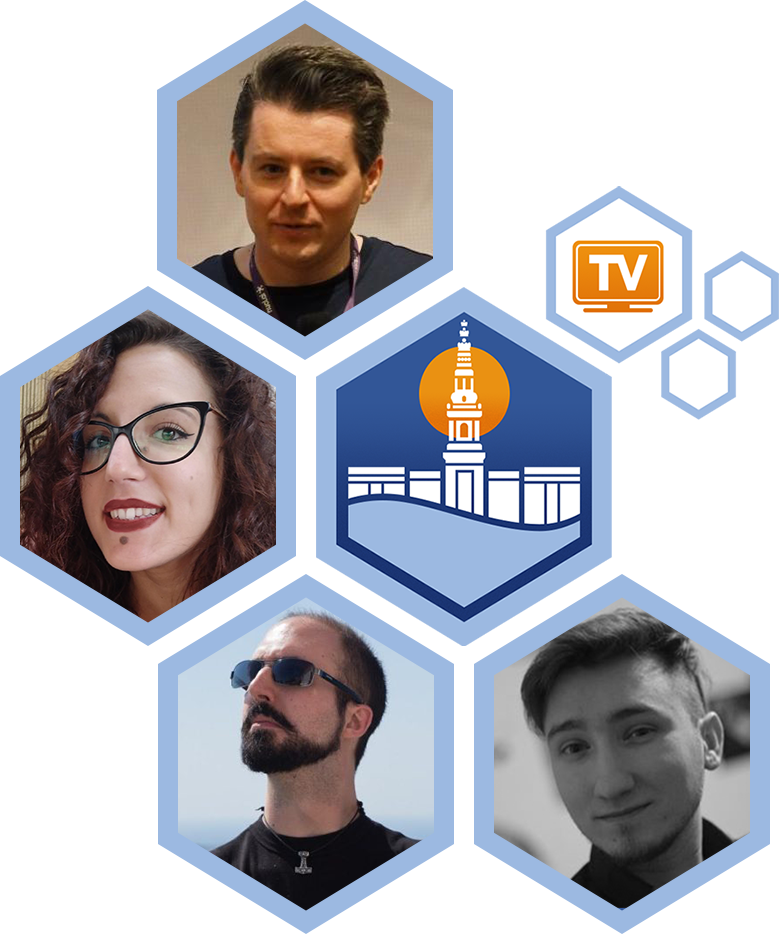
The Summer School TV will be broadcast on YouTube every evening after the regular sessions between 7 and 8 PM CEST (1 and 2 PM EDT).
The Crew
Tommy Thompson - Host
Enrica Loria - Co-Host
Antonios Liapis - Production Team
David Melhart - Production Team
Expectations on Participants
While the Summer School on Artificial Intelligence and Games is open to participants at varying levels of expertise and seniority, you will get more out of your participation in the summer school if you come equipped with some conceptual and technical knowledge. In particular, the following topics are worth touching up on, or reading up on if you do not already know them:
Tree search algorithms: informed and uninformed search (depth-first, breadth-first, A*); game tree search (Minimax); Monte Carlo Tree Search.
Machine learning: basic concepts (supervised, unsupervised, reinforcement learning); neural networks; decision trees.
If you are unsure about your level of understanding of artificial intelligence and machine learning, try reading Chapter 2 ("AI Methods") of the Artificial Intelligence and Games book, which covers these topics. You will find pointers there to material that can help you refresh your knowledge of particular topics.
Programming: it greatly helps to be able to program in some language. Which particular language is of lesser importance. Wherever possible, examples will be given in pseudocode so as to facilitate understanding across language barriers. However, some examples may be given in e.g. Python, Java or C#. The various tutorials and hands-on workshops are expected to use different frameworks and languages. We will add the list of specific language requirements per tutorial the closer we approach the school.
Game engines: knowledge of a game engine such as Unity will be useful during the concluding game AI jam.
Bringing your own laptop is similarly beneficial for participating in the practical sessions. We will not be able to provide a laptop for you during the summer school.
Apart from this, we only need you to come equipped with an open mind and a willingness to learn.
We want the First Summer School on Artificial Intelligence and Games to be joyful as well as useful occasion for all of us. Remember that participants come from many different countries, backgrounds, and experience, and treat everyone with respect and kindness. Please talk to the organisers if we can do something to improve your experience.
Software Guidelines for Participants
The various hands-on tutorials require different software installed on your laptops. To make the most of the tutorials please have the following software installed and prepared.
More details will be announced before the summer school.
Summer School Scholarships
for Students and University Faculty
There are 10 free passes available to Students and University Faculty to attend the International Summer School on Artificial Intelligence and Games!
We offer this opportunity to Students and University Faculty based on an outstanding CV and a short, one-paragraph letter of motivation emphasizing the role of this summer school to the development of your current or future game AI projects or research. Selected candidates will have their registration fee waived.
The applications should be submitted to gro.koobiaemag@loohcs with the subject line: "Scholarship 2021".
The deadline for applications is July 2.
Submissions are closed.
Students from developing countries will be prioritised (based on the OECD/DAC List of ODA Recipients).











